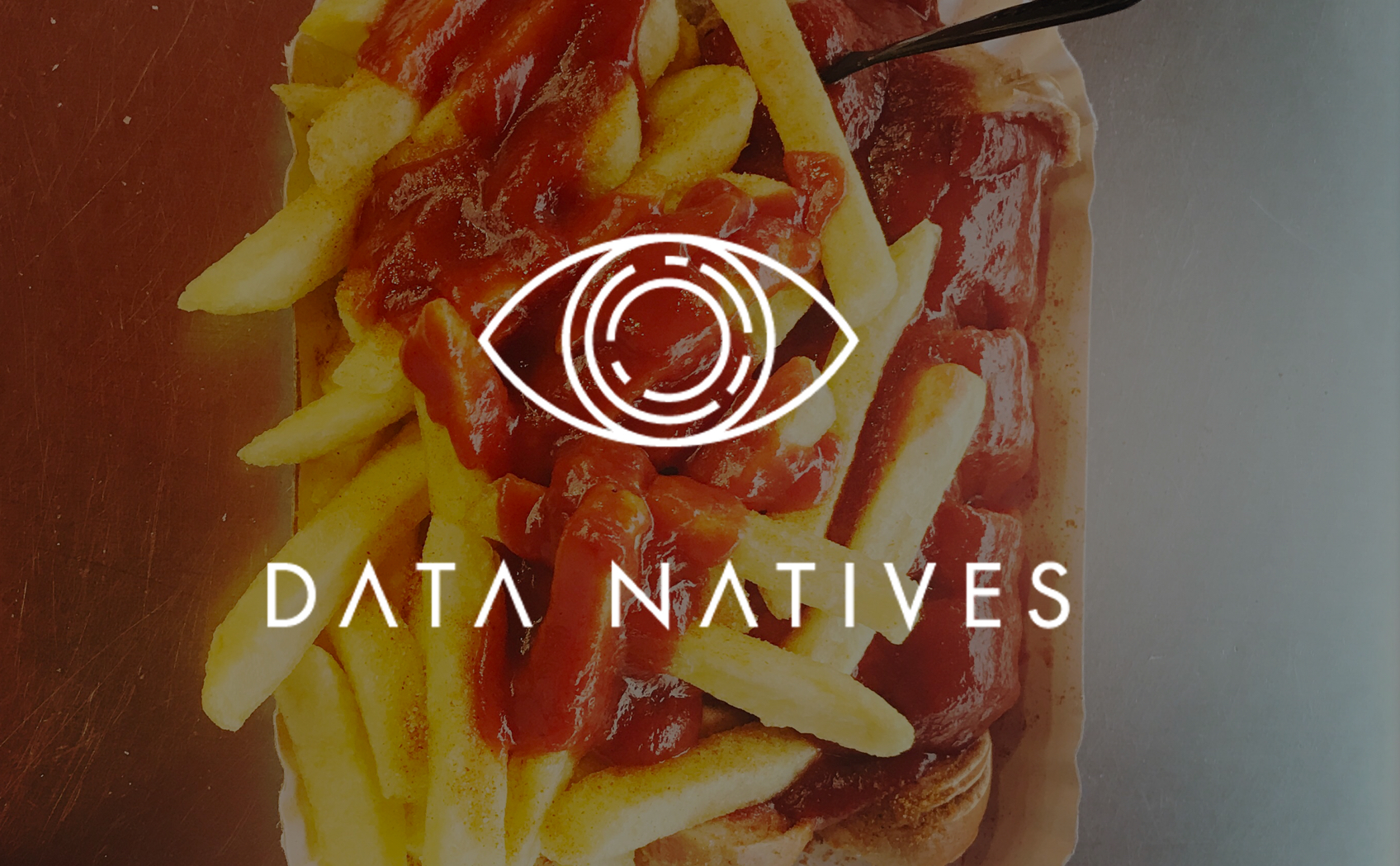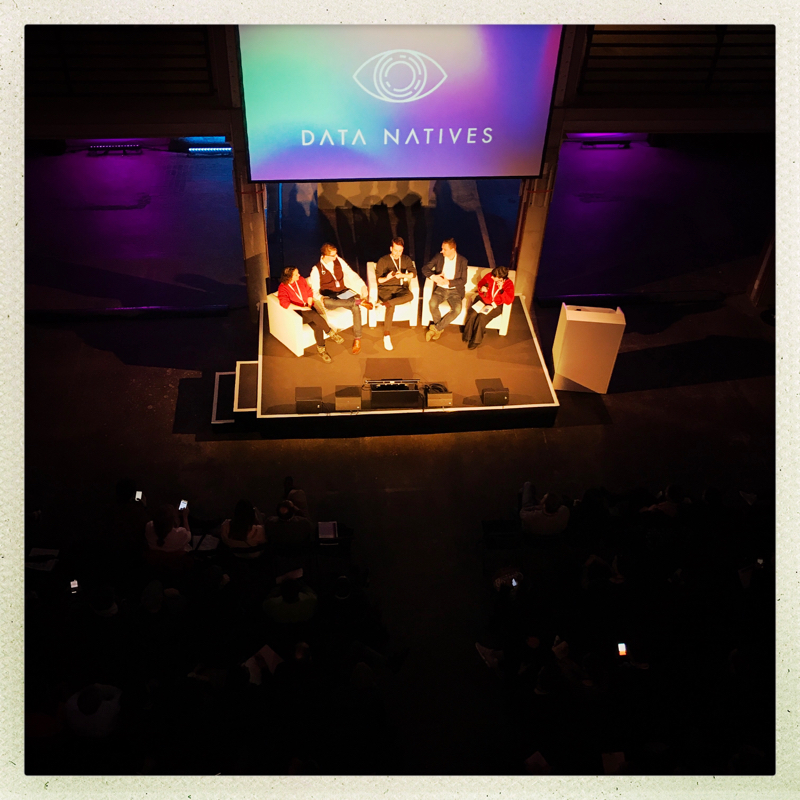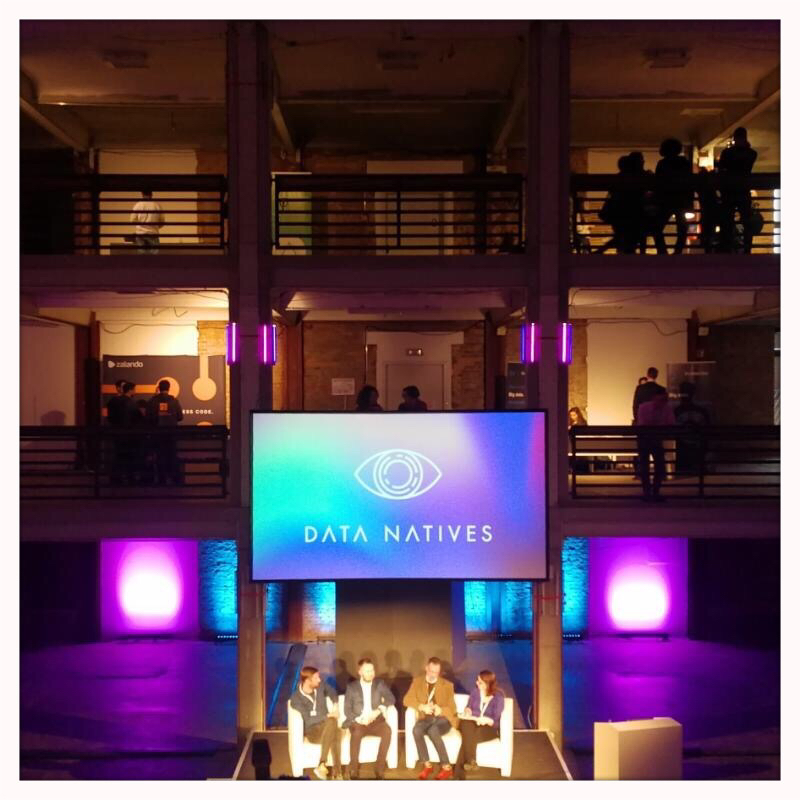
17 Nov Let’s talk data – insights from data natives 2017 Berlin
Here are some learnings from this year’s data natives conference in Berlin.
The conference for the data-driven generation:
Our digital interactions have evolved from a pure data exchange paradigm to a network for communications that consider by social aspects and eventually to a trust highway (John Calian, Deutsche Telekom Innovation Lab). Whereas email can be seen as the killer application of the fist generation web, social networks defined the web of the second generation. The current generation of the web is or rather will be driven by machine to machine smart contracts.
A broad set of technology trends deliver ever deeper insights from data. Among the top ten most important ones to discuss at the conference are (Kirk Borne, Booz Allen Hamilton):
- IoT (Internet of Things, …, Internet of Context) = “The Age of Context”
- Hyper-Personalization (Location-aware, Digital exhaust, Social trails)
- AI (not only Artificial, but Augmented & Assisted Intelligence)
- Machine Intelligence (Process Automation, chatbots, Deep Learning)
- AR (Augmented Reality: in the field, training, logistics, 3D data, information visualisation)
- Behavioral Analystics (predictive and perscriptive modeling of humans)
- Graph Analysis (“all the world is a graph”, linked data)
- Journey Science (people, processes, products)
- The Experience Economy (Design Thinking for User, Customer, Employee)
- Agile – DataOps (incremental, iterative, fail-fast, Minimum Viable Product)
There is a clear and ongoing trend towards platforms. The platform economy turned out to be one of the key force that separates winners in the market from their followers. Such market models are not new. The key distinction of today’s model is proliferation of connectivity and the growing power of data and data analytics. It often lead to pseudo monopolies through it’s tendency towards “winner-take-all market“
Nearly all elements of the data value chain can be copied. But in the platform economy service provider own the transaction data. This might be the reason for the durable competitive advantage of google. Let’s take their reCAPTCHA (system designed to establish that a computer user is human) service as an example. Users get involved to recognize elements in a picture and therefore add information.
The platform economy leverages network effects. Once first movers successfully passed the period of deception they are hard to catch up. This is why: Algorithms developed leveraging the trends mentioned above lead to digital products and services. When done right, these data products add value to the customer. This perceived value added will convince customers to provide even more data. The use of data products itself lead in this perfectly closed loop to a wealth of transaction and behavioral data.
Trust is the enabler to generate this feedback loop that adds value with every iteration.

All effort towards a data-driven organisation is worthless unless adoption is keeping up with expectations. Durability of a Business Intelligence strategy depends on the organization‘s ability to establish a data sensitive culture. This is best done by following a set of straight forward lessons learned (Mari Hermanns, Solaris Bank)
- Employees must be data literate (example Facebook sends employ to a two-week data boot camp to get to know core dimensions and measures)
- Provide an easy to use data infrastructure and broadly give access to data
- Establish a data dictionary (single metrics lexicon) for your data as single source of truth. Data must be part of every important discussion and decision. This is best illustrated with a quote from William Edwards Deming: “In God we trust, all others bring data”.
- Business Intelligence should not become a bottleneck
- Curiosity should be rewarded
There is no doubt: We enter a golden area for marketing: AI and Big Data are here to scale love. (Luisella Giani, Oracle). The current debate about data privacy (driven by GDPR) must be understood as a chance to heal damages in customer relationships and eventually to enhance digital experience.
However, while machines are clearly better in computing and logic, they are still significantly less effective than humans in performing non-routine practical jobs, in applying true empathy and ethical evaluation.
So, what’s next? (George Anadiotis, ZDNet, Linked Data Orchestration):
- Streaming becomes mainstream: Real time data processing. Lambda architecture to kappa architecture. Needed for IoT, programmatic advertising.
- Hybrid transactional analytical processing: An emerging application architecture that “breaks the wall” between transaction processing and analytics. It enables more informed and “in business real time” decision making.
- Insight platforms as a Service: Getting insights usually requires a broad set of components from data management to visualisation tools. This can all be offered as a service in the cloud. Implying that data and analysis sits in the cloud (IBM Watson, Amazon web services, MS Azure).
- Moving up the analytics stack: From descriptive Analytics to predictive and prescriptive analytics. We have reached a tipping point in deep learning.
- Machine learning feedback loop: The above described loop is imperative for automation and for the realization of cheaper and better services and products. Network effects in the platform economy drive them.
All these insights from this great conference indicate that trends encapsulated in the discipline of data science” will further shape our economy and eventually our daily lives.
While we are on track to finding answers to many complex technical problems there is a long list of open (and probably even more complex) questions; The data economy demands a new approach to antitrust rules. Today we are talking about machines displacing people. Tomorrow we need an answer to the question “who owns these machines and who is going to be accountable for what they do?
Do we have a choice? Time flies and technology waits for nobody













No Comments